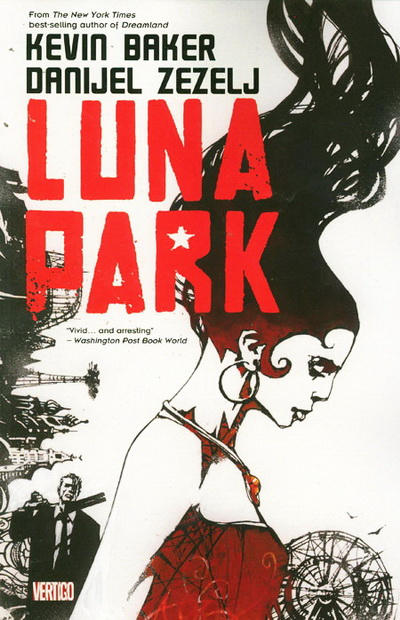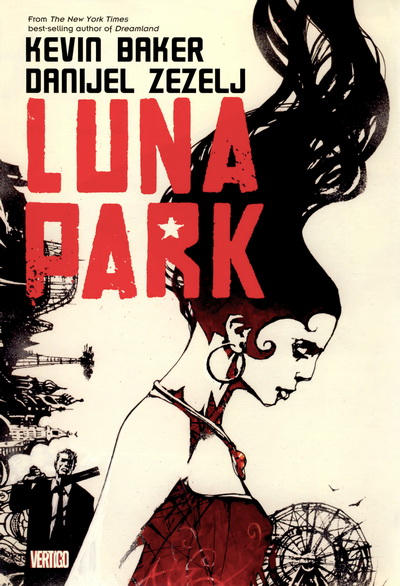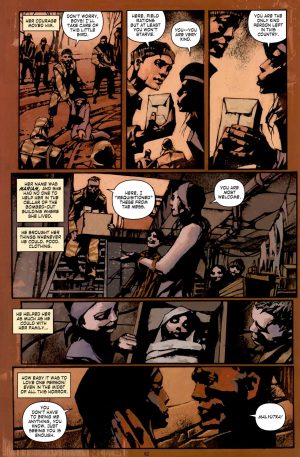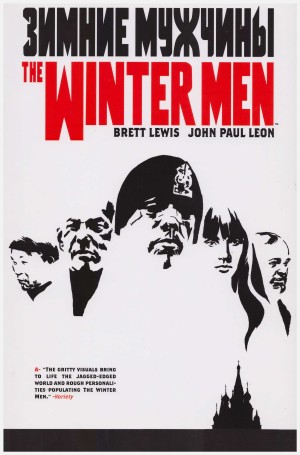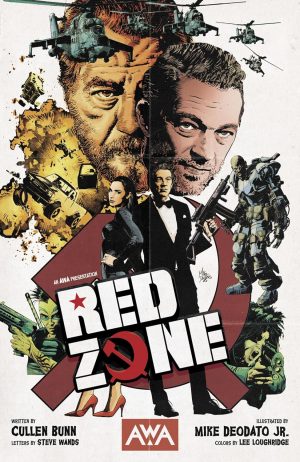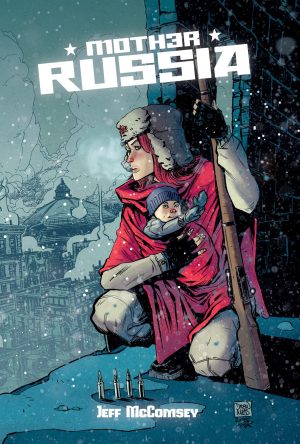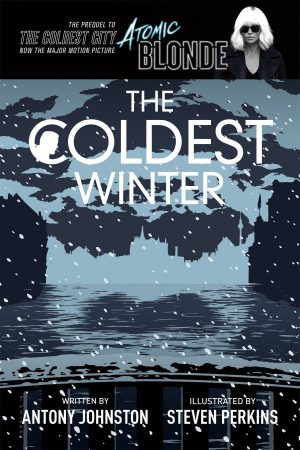Review by Colin Credle
Starting in modern day Coney Island, Luna Park spans the tides of time across the Russian steppe, Chechnya and Ukraine. Author Kevin Baker and artist Danijel Zezelj introduce us to loan collector, and former soldier Alik Strelnikov, a poet and apparently a softy when it comes to collecting his boss’s debts. Alik is wrestling with demons of his past, poor decisions made under historically horrible circumstances in Mother Russia, as his father once did, as his grandfather once did and so on and so on. Now Strelnikov is in America still lamenting unrequited love, lost chances and bucking up against the tides of change and opportunity in New York. Is America any different than Russia? Is there hope? Is there redemption?
Luna Park is presented with a claustrophobic and suffocating grip of fate and destiny. In this regard, Zezelj’s artwork complements the story with dark, harsh lines in small sepia-toned boxes rendered to depict cold and unforgiving settings with a mood of nostalgia.
Just as film voiceovers risk becoming tiresome, Luna Park’s lengthy text boxes become stultifying, slowing the narrative down, and it takes 23 pages for dialogue to pick up speed. When dialogue and illustrations synchronize, we should be thankful as dialogue with action provides a better sense of time flowing and the characters become more substantive and relatable.
The lengthy text boxes also imply a puppeteer, an all-knowing narrator seeing more than the characters notice. This omniscient narrator tells us of legends, of historical atrocities driven by cunning and rage, and misplaced hope leading to unintended betrayals and disasters. As we progress, these events are presented as a pattern – as fate, as destiny. A thread between all the events becomes more apparent. The pattern is not completely clear, but it’s there and it’s larger than Strelnikov’s foibles.
Stories where destiny, fate and dark forces deprive characters of any free will can be depressing, and it’s common for choices to be reduced, painting the characters into a corner. In this case it’s Strelnikov trying to deceive and betray his way to freedom on more than one occasion. Strelnikov’s entrapment seems contrived and more in service of the author’s controlled narrative than in the development of Strelnikov’s character. It’s pretty clear where the author wants us to go, and everything being pre-ordained is a cop-out, both for our hero and for Baker’s tale.
There’s nothing wrong with a story being grim, and for some it’s more palatable when rooting for a character to survive and succeed. Luna Park certainly starts off that way, but by the end, if everything is pre-ordained what’s the point? Strelnikov’s choices continue to be poorly made and coerced, even when he becomes aware of a historic pattern. The reader ends up being railroaded into a twist ending that’s forced and falls flat. For the twist, there is a final leap in the storyline that remains unexplained and far-fetched.
The most rewarding reading is the historical vignettes peppered throughout the middle of Luna Park. These stories within a story captivate on their own, if you don’t mind the voiceover narrative captions. Unfortunately attempting to sew all these vignettes together into a quilted narrative makes the whole ragged and unenjoyable.
